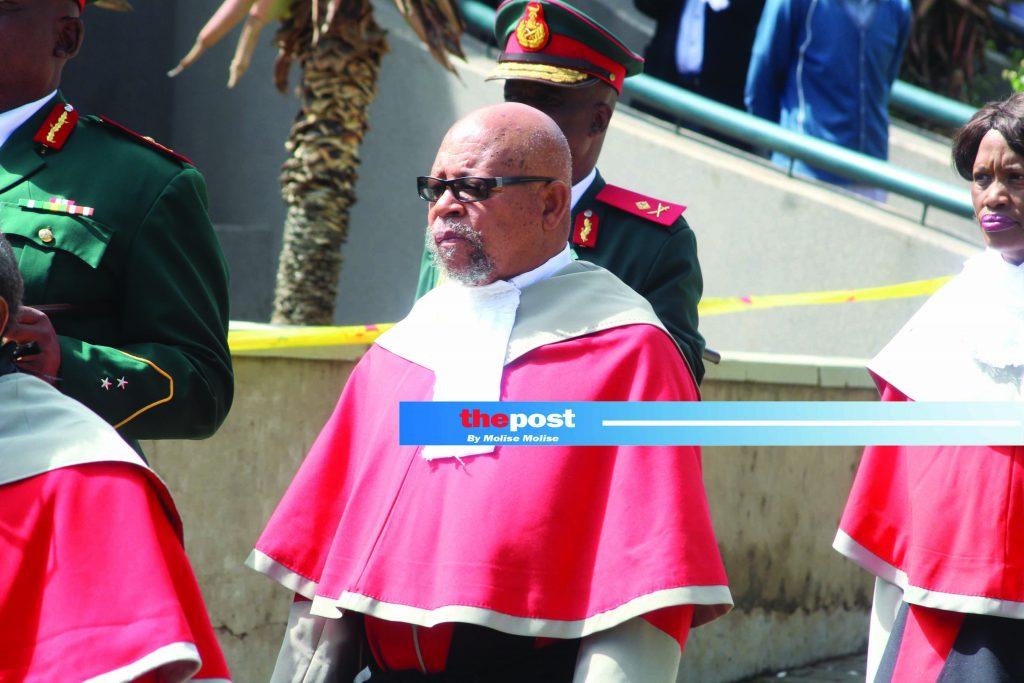Africa-Press – Lesotho. THE Court of Appeal last week failed to hear a case in which Commissioner Holomo Molibeli was appealing against a ruling by a High Court judge because there was no written judgment.
Lance Sergeant ’Mamothebe Motseki, who is the treasurer of the Lesotho Police Staff Association (Leposa), had asked Justice Tšeliso Monaphathi to stop Commissioner Molibeli from firing her.
Justice Monaphathi ruled in favour of L/Sgt Motseki but only gave a verbal order without writing any reasons supporting his decision. The matter could not proceed last week because there was no written judgment.
The matter sprung from L/Sgt Motseki’s statements at a funeral in Mafeteng where she allegedly insinuated that there was corruption in the police. The police management wanted to fire her because the statements were said to be tarnishing the image of the police as an institution.
The High Court issued an interim order barring Commissioner Molibeli from expelling L/Sgt Motseki but he proceeded to dismiss her. Justice Monaphathi set aside Commissioner Molibeli’s decision but did not write down his reasons.
As a result Commissioner Molibeli has taken the matter to the Court Appeal in his push to dismiss L/Sgt Motseki. The Court of Appeal President, Justice Kananelo Mosito, berated High Court judges last week for this practice, without necessarily mentioning them by names.
“Since 1997, this court has been complaining about the failure by some High Court judges to give reasons for their judgements to no avail,” Justice Mosito said.
About four years ago, in a case in which the now late Colonel Tefo Hashatsi had sued the Prime Minister, the Court of Appeal said it was unfair that the High Court had not given written reasons for its decisions.
Colonel Hashatsi was challenging the Phumaphi Commission of Inquiry’s hearing of evidence against him in South Africa, where some of the witnesses were living in exile. He lost the case in the High Court. The Court of Appeal said it was “unfortunate that the case has proceeded in the absence of a written judgment”.
It said one of the respondents, the widow of the slain army commander Lieutenant General Maaparankoe Mahao, ’Mamphanya Mahao, had “been specifically challenged in drafting (her) heads of argument in the absence of a written judgment”.
“For example, (’Mamphanya) has raised a number of preliminary issues in the High Court and does not know the extent to which any of these submissions have been accepted or rejected, making it impossible to verify the correctness of (Hashatsi)’s argument…”
“This Court has acknowledged the prejudice suffered by parties where there is no written judgment:
“Parties expend anxious time and hard-earned money in taking a matter to the High Court.
“They are entitled to know the reasons for reaching the conclusion to which the Judge has come.
“In addition, where there is an appeal against the judgment or order the parties cannot fully prepare their cases in the absence of the reasons and this Court requires to know the reasons in order properly to bring a fully informed mind to bear on the question whether the Judge was right.
“In the absence of a written judgment, the record of proceedings is incomplete,” the Court of Appeal said.
For More News And Analysis About Lesotho Follow Africa-Press






